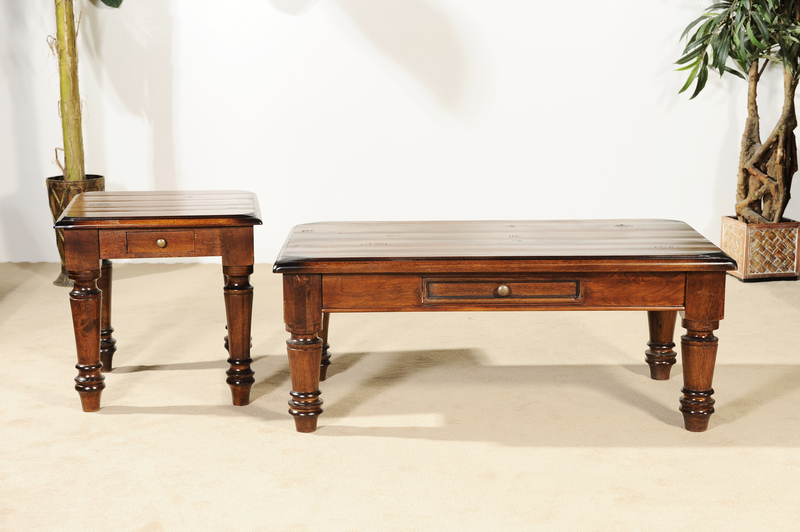Understanding Local Guidelines for Pots and Pans Disposal
Pots and pans are among the essential kitchen items in every household. Over time, they may become scratched, warped, or simply replaced by newer models. When it's finally time to say goodbye to your old cookware, figuring out the right way to dispose of them can be confusing. This comprehensive guide to local pots and pans disposal will help you navigate the regulations and environmental best practices, ensuring you discard your cookware responsibly and sustainably.
Why Proper Pots and Pans Disposal Matters
Before diving into the specific local regulations for pots and pans disposal, it's important to understand the environmental implications of improper cookware disposal. Most pots and pans are made from metals such as aluminum, stainless steel, or cast iron, which do not biodegrade. Coatings like Teflon or enamel can also introduce toxins if burned or dumped in landfills. Proper disposal helps conserve resources, minimize landfill waste, and protect our ecosystems.
- Environmental Protection: Prevents metals and chemicals from leaching into soil and groundwater.
- Resource Conservation: Enables valuable metals to be recycled and reused, reducing the need for mining.
- Compliance: Adheres to local laws and avoids fines for improper disposal.

General Guidelines for Disposing of Pots and Pans
Understanding the general options for pots and pans disposal is the first step. While local rules may vary, most jurisdictions recommend one or more of the following methods:
1. Recycling
Many pots and pans are recyclable, but this largely depends on the materials they're made from and local recycling capabilities.
- Metal Recycling: Pure metal cookware (such as aluminum, stainless steel, or cast iron) is generally accepted by scrap metal facilities.
- Mixed Materials: If your cookware has plastic or wooden handles, or a non-stick coating, it may need some disassembly or special treatment before recycling.
- Check with Local Facilities: Always contact your local recycling center or municipal waste authority for specific instructions. Some centers may require you to drop items off, while others offer curbside pickup during special collection days.
2. Donation or Reuse
If your old pots and pans are still in usable condition, consider giving them a second life.
- Charity Organizations: Many thrift stores, shelters, and community groups accept gently used kitchenware.
- Online Giveaways: Use local online marketplaces (like Freecycle or Craigslist) to find someone who can use your unwanted pots and pans.
- Creative Repurposing: Broken or old cookware can be upcycled for use as planters, craft items, or storage containers.
3. Trash Disposal (As a Last Resort)
If recycling or donation isn't possible, disposal in the regular trash may be allowed. However, always check with your local waste management services, as some areas prohibit metal cookware in household waste.
When discarding in the trash, consider wrapping items to prevent damage to trash bags or injury to sanitation workers.
Understanding Local Pots and Pans Disposal Regulations
How you should dispose of pots and pans often depends on local rules. Municipalities structure waste management differently, so it's essential to learn about the ordinances and recommendations in your area. Here's how local guidelines may vary:
- Recycling Program Variability: Some cities accept metal cookware in curbside recycling, while others require delivery to a special facility.
- Hazardous Waste Days: Certain coatings (especially Teflon known as PTFE) might only be acceptable during hazardous waste collection events.
- Limits on Bulk Items: There may be restrictions on the number, size, or type of household items allowed per collection cycle.
How to Check Your Local Guidelines for Pots and Pans Disposal
- Visit Your Municipal Website: Most cities have a sanitation or public works department website with information on recycling and waste disposal.
- Contact Collection Services: Call your local waste management provider to ask specific questions about pans and pots disposal.
- Look for Special Recycling Days: Some towns host events for disposing of metals, appliances, or hazardous-coating items once or twice a year.
- Check for E-Waste Collection: Oddly shaped or coated cookware may be included with appliance or e-waste drop-offs in some areas.
Tip: Search for "your city + cookware disposal" or "your city + recycling metal cookware" to find the most accurate information.
Material-Specific Considerations for Cookware Disposal
Different pots and pans require different disposal treatments based on their materials:
Aluminum and Stainless Steel
- Highly recyclable and often accepted by most metal scrap dealers.
- Remove any plastic, silicone, or wood parts where possible.
- Check for special instructions if the cookware has non-stick coatings.
Cast Iron
- Durable and 100% recyclable by metal recyclers.
- Many people prefer to restore old cast iron to reusable condition. Consider donation or refurbishment before recycling.
Non-Stick or Teflon-Coated
- Special care is needed, as Teflon and similar coatings can be hazardous if overheated or burned.
- Some centers accept these coatings, but others require hazardous waste collection. Always check your local rules first.
Ceramic or Enamel-Coated
- Not always accepted in traditional metal recycling due to the coating.
- Check for specialized recycling options or dispose of per your municipality's instructions.
Recycling Pots and Pans: Local Drop-Off and Collection
If your community accepts cookware metals, here's how to prepare your items:
- Clean Thoroughly: Wash off all food residue to prevent contamination.
- Disassemble Where Possible: Remove non-metal parts for standard metal recycling.
- Ask About Mixed-Material Items: If components can't be separated, check if your local facility can process mixed materials.
Finding the Right Facility
Enter "scrap metal recycling near me" in your search engine or use your municipality's recycling locator tool. Most facilities will detail which items they accept, including various types of pots and pans for recycling.
How to Donate Old Pots and Pans Locally
Many communities are in need of basic home goods. Donating old pots and pans can keep them out of landfills and help families or organizations.
- Thrift and Charity Stores: Goodwill, Salvation Army, and local shelters often accept functioning cookware.
- Community Kitchens: Local food programs may welcome extra pots and pans for meal preparation.
- Online Swaps: Local social media groups, Nextdoor, or Freecycle are quick ways to gift unneeded cookware.
When donating, clean items thoroughly and ensure there are no major cracks or unsafe coatings.
Creative Ways to Upcycle Old Cookware
If you enjoy DIY projects, consider repurposing old pots and pans into:
- Stylish planters for gardens or patios
- Wall art or clocks made from old fry pans
- Organizers for kitchen tools, craft supplies, or small hardware
- Novelty serving trays for parties or picnics
Upcycling not only reduces waste but also lets you get creative while contributing to waste reduction.
Common Questions about Pots and Pans Disposal
Do Non-Stick Pans Have Special Disposal Requirements?
Yes, many non-stick cookware items contain coatings that may be classified as hazardous waste in some municipalities. Consult local hazardous waste guidelines before discarding non-stick pans.
Can I Recycle Pots and Pans Curbside?
Some cities allow metal cookware in curbside bins, but many require drop-off at a recycling center. Follow your local recycling program guidelines.
Are There Fines for Improper Cookware Disposal?
Improper disposal of pots and pans--such as dumping them in regular trash or illegal locations--can result in fines. Always check your local solid waste authority for compliance rules and possible penalties.

Summary: Responsible Pots and Pans Disposal Is a Local Priority
Understanding local pots and pans disposal guidelines is essential both for environmental stewardship and community compliance. Whether your cookware is metal, non-stick, or ceramic, proper disposal or alternatives like recycling and donation help protect resources and reduce waste.
- Check with your municipal waste management office for specific instructions.
- When possible, donate or recycle rather than landfill.
- Always separate and clean cookware for proper processing.
- Consider upcycling as a creative, eco-friendly solution.
By following your local pots and pans disposal policies, you contribute to a cleaner environment and a more sustainable future for your community.
References and Additional Resources
- Earth911 Recycling Search
- U.S. EPA: How Do I Recycle?
- Find a Goodwill Near You
- The Freecycle Network
For the best and most environmentally friendly results, always follow your local guidelines for pots and pans disposal and inquire directly with local facilities as policies change frequently.